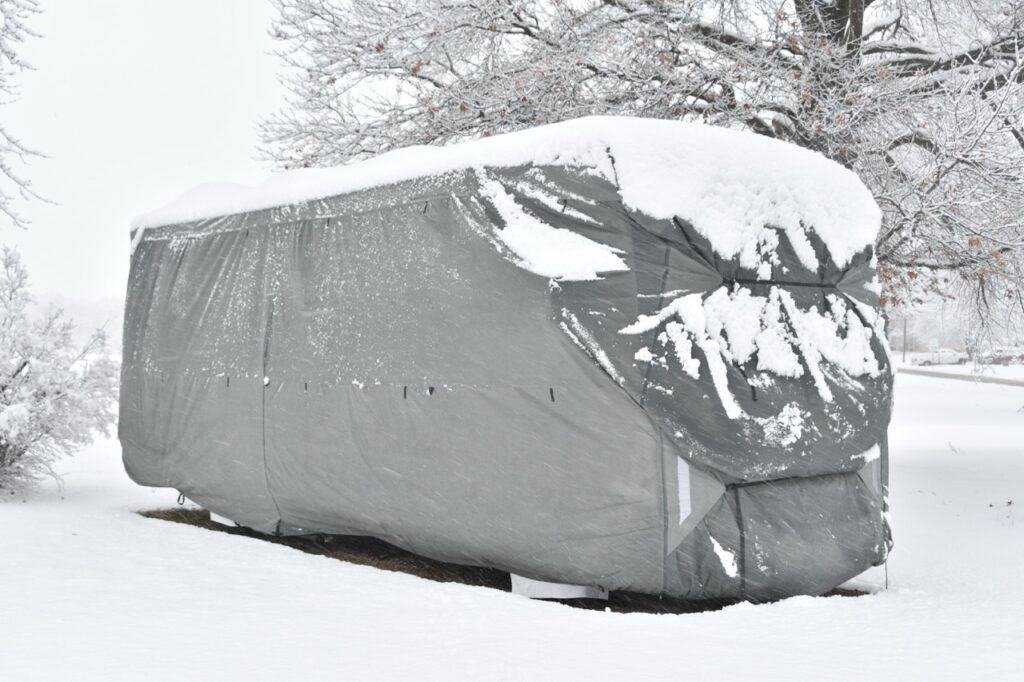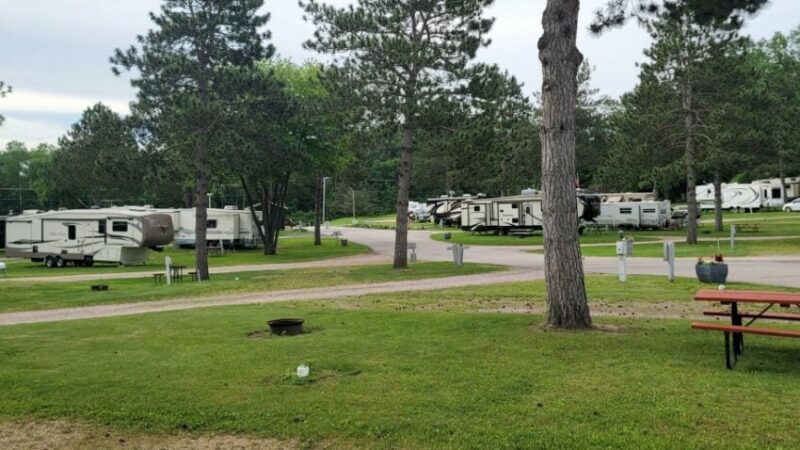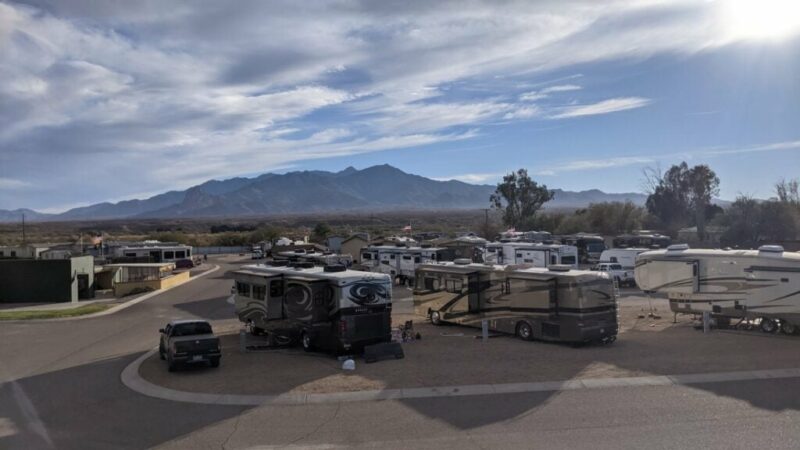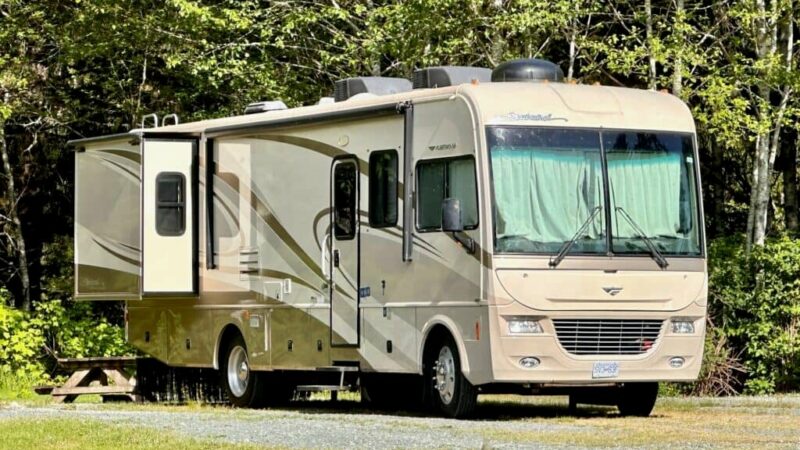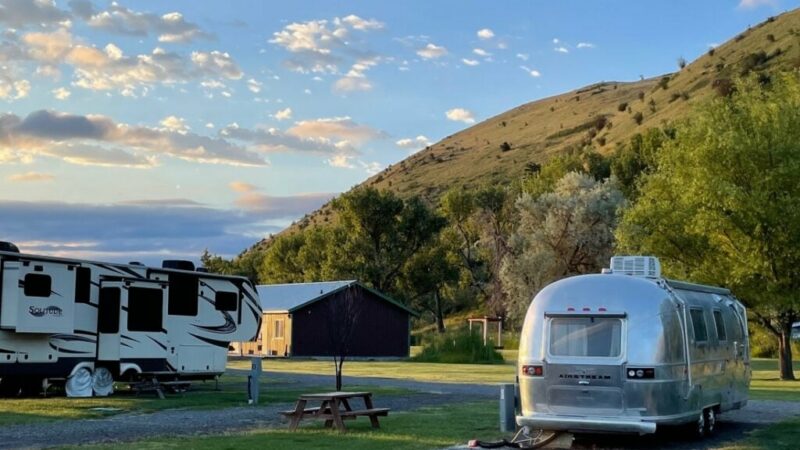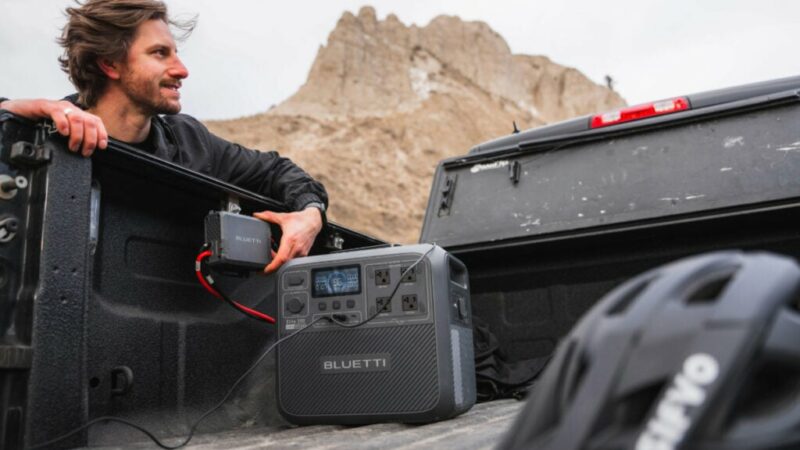An Overview of RV Covers
RV covers are one of those things many RV owners don’t think much about. That said, if you can’t store your RV in a covered facility, an RV cover is something you should seriously consider.
Not sure if you need one? Unsure of which kind you should buy? This article addresses all that and more.
Why Use an RV Cover?
First, let’s talk about who might want to invest in an RV cover and why. Generally speaking, anyone who owns an RV that sits in storage for weeks at a time and cannot store their rig in a covered facility should invest in an RV cover. Such covers offer protection from the elements and can help prevent water damage to your rig. They can also help preserve tires, skylights, roofing material, and more.
Choosing the Right RV Cover
Does that sound like something you need? We thought so. You may be wondering what exactly you’re looking for. Let’s discuss the kinds of things you might want to consider while shopping for one.
Material Type
Material type is an important thing to think about. Breathable fabric prevents mold and mildew, while durable layers protect against UV rays, rain, and snow. Make sure the fabric you buy matches the climate of your area.
Popular RV cover materials include the following:
Polypropylene Covers
Polypropylene is a lightweight and breathable material, often used in entry-level RV covers.
Pros:
- Affordable and readily available.
- Breathable fabric prevents mold and mildew growth.
- Lightweight and easy to handle.
Cons:
- Limited durability, especially in extreme weather conditions.
- Offers moderate UV protection.
- May not last as long as other materials.
Polyester Covers
Polyester is a versatile material that is commonly used for mid-range RV covers.
Pros:
- Durable and resistant to tears.
- Good UV- and moisture protection.
- Lightweight and easier to install.
Cons:
- Less breathable than polypropylene.
- Can be more expensive than polypropylene options.
Polyethylene Covers
Polyethylene is a heavy-duty material often used in premium RV covers.
Pros:
- Superior waterproofing and UV protection.
- Highly durable and suitable for harsh weather conditions.
- Resistant to tearing and punctures.
Cons:
- Heavier and bulkier, making installation more challenging.
- Less breathable, which can lead to condensation buildup if not ventilated.
Vinyl Covers
Vinyl is a highly durable and weather-resistant material, often used for custom RV covers.
Pros:
- Excellent protection against water, UV rays, and snow.
- Long-lasting and resistant to wear and tear.
- Easy to clean and maintain.
Cons:
- Heavier and more expensive than other materials.
- Less breathable, requiring proper ventilation.
Mixed-Material Covers
Some RV covers combine materials (such as polypropylene and polyester) to offer a balance of benefits.
Pros:
- Offers both breathability and durability.
- Better UV- and water protection than single-material covers.
- Mid-range in price and performance.
Cons:
- May not excel in extreme weather conditions compared to specialized materials.
- Could be harder to find or more expensive than single-material covers.
Proper Fit
Making sure the cover fits properly is also important. A cover that is too small won’t fit over the RV, meaning little to no protection. Meanwhile, a cover that is too big is liable to fall off and will flap in the wind, something that could cause more harm than good to your RV.
To make sure you get the right size, measure your RV’s length, width, and height, including any rooftop accessories like A/C units or antennas.
Reinforced Areas
You’ll want an RV cover that will hold up in all weather. Look for covers with reinforced corners and seams. These will last longer, especially in windy areas. You may also want to shop for covers with reinforced zippers.
Ease of Installation
A cover that is too difficult to use may never get used at all. For this reason, it’s best to find a cover that can be installed as easily as possible. A lightweight design is easier to handle and position over your RV and some covers come with installation tools or straps for a simpler setup process. You may also want to look for a cover with zippered access panels that allow you to get to storage bays as well as the front door without removing the cover.
Weather Resistance and Ventilation
Choose a cover based on what the weather will be like wherever the RV is stored. A waterproof cover is essential for rainy climates, and one with UV protection prevents fading and cracking of your RV’s exterior in sunny areas. Heavier covers designed for snow load are ideal for colder climates, and built-in vents are good in humid or wet areas, as they help prevent mold.
Straps and Anchors
Obviously, you’ll want to make sure your RV cover stays in place. As mentioned above, ensuring a good fit is part of this. However, you’ll also want to look for a cover with straps and/or anchors. Adjustable straps keep the cover secure and minimize movement in windy conditions. Meanwhile, anchor points ensure the cover stays in place, even during storms.
Warranty
Last but not least, you’ll want to look for an RV cover with a good warranty. A longer warranty indicates better quality and durability. Generally, to find a good warranty, you’ll need to opt for trusted brands known for RV accessories.
Popular RV Cover Brands
So what are the more well-known RV cover brands out there? Below are four of the most popular picks. Choose one of these brands and you can’t really go wrong.
ADCO/Covercraft
ADCO is a top-rated brand for RV covers, and is well known by many for its good quality. The ADCO line (under the Covercraft umbrella) includes options tailored to different climates, including wet weather and snow. This means you’ll have excellent protection for your RV no matter where you live.
Classic Accessories
Classic Accessories delivers high-quality RV covers at an affordable price. The company offerings include the lightweight and durable OverDrive-PermaPRO (ideal for frequent use) and the OverDrive-PolyPRO3, specifically designed for winter storage. On top of all that, this brand is well-known for its amazing customer service.
Camco
As an RVer, you likely already know that Camco Outdoors is a trusted name in RV accessories. Camco’s covers balance affordability, accessibility, and quality. Yes, these covers are simple and straightforward, but they provide good solid protection, making them a great choice for RVers on a budget.
Eevelle
Lastly, there is Eevelle. This brand specializes in premium RV covers, with a focus on durable materials and long-lasting warranties. Yes, the covers are more expensive, but their high quality and specialized protection make them a worthwhile investment.
An RV cover is an investment that can extend the life of your vehicle, so take the time to choose the material that suits your needs.
The post An Overview of RV Covers appeared first on RV LIFE.

